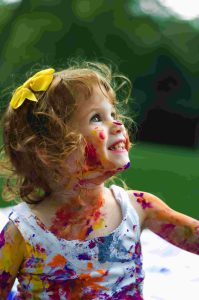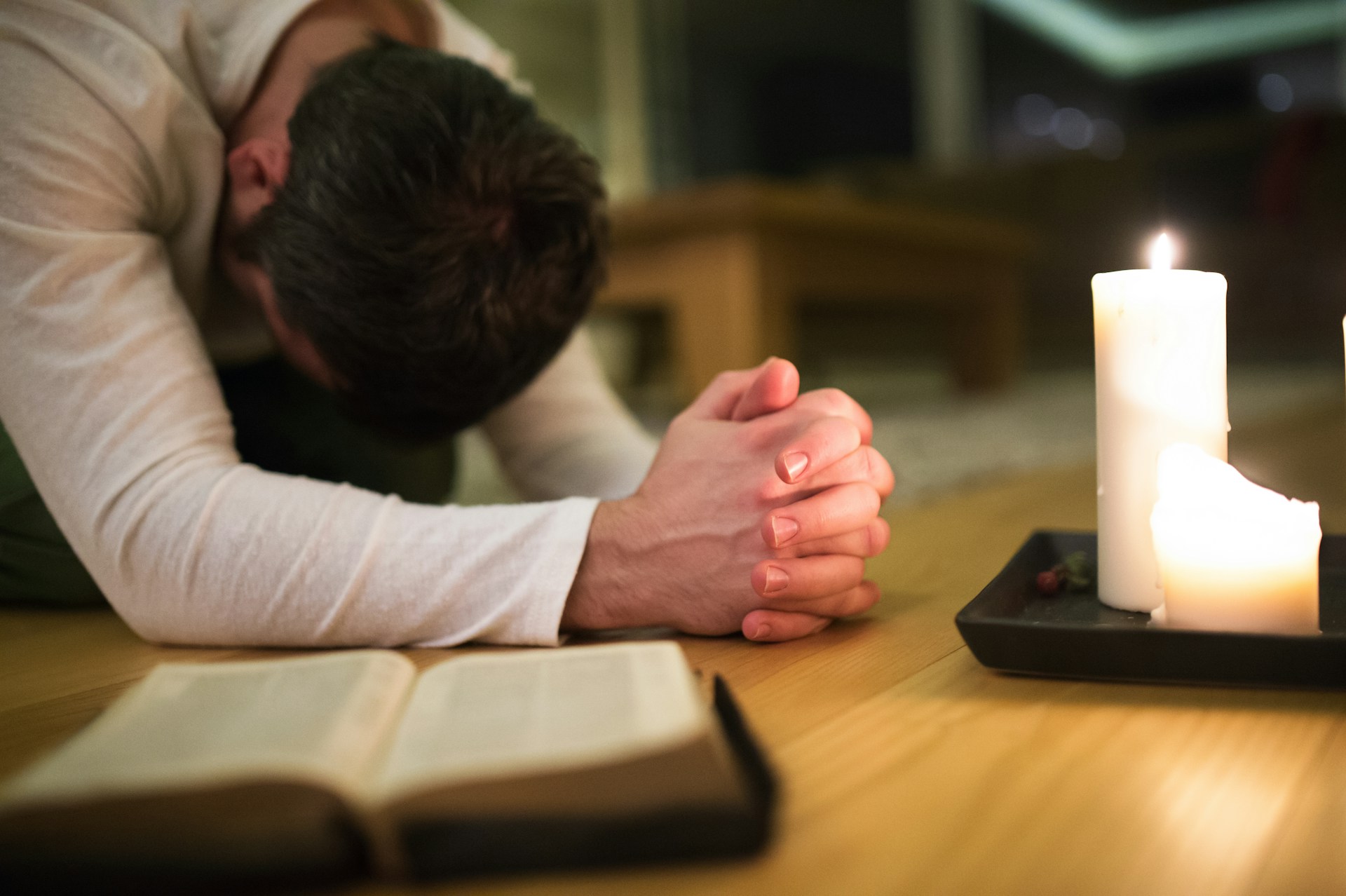You may be familiar with the phrase “dinner-bath-bed” as it applies to small toddlers. This is a type of ritual that helps to give the young child an expectation of what is going to happen next and helps to form his or her view of the world. This article will explain how these rituals are linked to signs of obsessive-compulsive disorder (OCD) in children.
 As a child matures, so do the types of rituals that apply. At school, children create group rituals when learning to play games in the playground, singing songs, or taking part in sports. Teenagers may start collecting items as a hobby. These rituals play an important part in helping children socialize and learn to cope with anxiety.
As a child matures, so do the types of rituals that apply. At school, children create group rituals when learning to play games in the playground, singing songs, or taking part in sports. Teenagers may start collecting items as a hobby. These rituals play an important part in helping children socialize and learn to cope with anxiety.
Noticing Signs of OCD
This is where obsessive-compulsive disorders (OCD) come in. OCD is a type of anxiety disorder that is linked to obsessions via recurring thoughts, and compulsions via recurring behaviors.
Studies show that unwanted obsessive thoughts in children are often a sign of OCD. These thoughts are linked to fears, such as becoming dirty by touching an object. He or she will use compulsive rituals like too-frequent handwashing as a way to control fear.
Confronted with the challenge of obsessive thoughts, a child with OCD will display increasingly more signs of OCD through recurrent and compelling rituals that may even get in the way of everyday life and development.
What are the reasons for the signs of OCD?

Studies have presented inconclusive results on the cause of OCD. However, experts think that this disorder is caused in our brains due to a lack of the chemical serotonin. As with other disorders, if your parents and siblings have OCD, there is a higher chance that you may have it too. This leads some experts to conclude that its cause may be genetic.
OCD is also known to arise in families without a history of it, and after streptococcal infections, which may trigger OCD or aggravate it.
What are the signs of OCD in a child?
Just as each child is a unique individual, so OCD presents differently in each person. However, the most common symptoms include the following:
- Spending an inordinate amount of time counting and thinking about numbers and sequences, or touching things
- Far too much attention to detail
- Constant fretting that something bad is going to happen
- An abnormal preoccupation with germs or dirt
- Doubts which do not go away, such as whether or not a door is locked, or if a window of the house has been left open
- Thoughts that interfere with normal behavior, such as violence, hurting someone, or even killing them, or hurting yourself
- Thinking about, wanting to, or behaving in an aggressive manner
- An obsession with order, precision, and symmetry
- Continual thoughts about doing offensive sexual acts or taking part in forbidden or taboo behaviors
- Being disturbed by thoughts that conflict with personal beliefs
- Feeling an urgency to know or remember relatively insignificant things
Compulsive behaviors are the repeated rituals that are used to ease the anxiety triggered by these obsessions.
Signs of OCD in everyday life are seen as over-the-top, disturbing, and time-consuming activities that interfere with normal life and relationships.
These signs of OCD may then result in a person with OCD doing the following:
- Compulsively asking the same questions
- Washing hands dozens of times each day
- Checking repeatedly and often that a door or window is locked
- Frequently swearing, saying rude things, or gesturing in rude and obscene ways
- Counting and then recounting, and repeating this process
- Repeating the words that you or others have spoken
- Making groups of objects, or putting objects in a particular order
- Making the same sounds, saying the same words, repeating, counting to yourself
- Hoarding and not being able to part with objects
- Doing things in an ordered and sequential way each day, such as getting dressed in the same order
Parents often interpret the symptoms of OCD as health problems belonging to another disorder or illness. It is certainly a good idea to take your child diagnosed by a professional, registered healthcare provider.
How are the signs of OCD attributed to the disorder in a child?
 A mental health assessment provided by a child psychiatrist or another type of expert in mental health is used to determine whether your child has OCD. Before doing the diagnosis, the expert will likely ask you what continuous obsessions and compulsions your child has that interfere with daily life and are detrimental to development.
A mental health assessment provided by a child psychiatrist or another type of expert in mental health is used to determine whether your child has OCD. Before doing the diagnosis, the expert will likely ask you what continuous obsessions and compulsions your child has that interfere with daily life and are detrimental to development.
In many cases, experts will find that OCD brings with it activities such as those mentioned above that may use up an hour or more each day to complete. Repeated activities are found to cause mental health distress and may even affect how your child thinks. Adults with OCD are often able to recognize that their actions are abnormal, but children are not mature enough to notice their own irrational and irregular behavior.
Treating Signs of OCD in Children
A child’s age, type of symptoms, and health will determine the treatment that is most appropriate for them. The severity of the condition is also considered. OCD treatment will often include several or a combination of the following methods.
Therapy focuses on cognition and behavior. Cognitive therapy methods will help a child pinpoint and understand his or her fears and teach him or her new, and possibly better ways, to help resolve or reduce these.
Methods that help the child and family make promises or rules with one another that help limit or change behaviors are known as behavioral methods. An example could be setting a maximum number of times a compulsive door-checker may test whether the door is locked.
 Family therapy will bring parents in as they play a key role in all treatment processes, and possibly also the child’s school, if this is needed.
Family therapy will bring parents in as they play a key role in all treatment processes, and possibly also the child’s school, if this is needed.
A teen with OCD may also have an eating disorder, and this will need treatment as well.
In terms of chemical treatments, your medical practitioner may prescribe selective serotonin reuptake inhibitors, also known as SSRIs, which are medicines that help raise serotonin levels in the brain. And of course, antibiotics if your child’s OCD is found to be linked to a streptococcal infection.
Can parents prevent OCD in their children?
Currently, there is no sure way to prevent OCD from occurring in teenagers or children. However, if you notice the signs of OCD in your child, it helps to schedule an evaluation immediately. As with many medical conditions, early treatment can greatly reduce symptoms and increase your child’s ability to develop along a normal trajectory. This will greatly improve his or her quality of life as he or she gets older.
Assisting Your Child With OCD
There are several helpful things that parents can do to help children who show signs of OCD. Part of this will be ensuring that your child receives the recommended treatment. This will often be in the form of one-on-one therapy and possibly some medicine.
Read through this list to identify some things that you can do to help your child:
- Keep all appointments that are scheduled with the healthcare provider. You must know about every healthcare provider included on the team to provide care for your child. A team that includes counselors, social workers, therapists, psychologists, and psychiatrists will provide excellent care for your child. Your child’s needs and the nature of their OCD will determine what type of help he or she receives.
- Make sure that you are communicating openly and regularly with your child, who may feel embarrassed about his or her disorder. Help your child to know it is important to speak about it openly to others to remove any potential awkwardness from social situations.
- Be clear and transparent to others about your child’s disorder and work closely together with your child’s healthcare provider and school to create a treatment plan.
- Look for and benefit from the support available in local community services. Being in touch with other parents whose children are also displaying signs of OCD may prove to be helpful to you.
Get Help to Better Identify Signs of OCD in Children
If you are looking for additional help to identify signs of OCD in children, please browse our online counselor directory or contact our office to schedule an appointment. We would be honored to walk with you on this journey.
Photos:
“Skateboarders”, Courtesy of Getty Images, Unsplash.com, Unsplash+ License; “Ready for the Rain”, Courtesy of Ben Wicks, Unsplash.com, CC0 License; “Fence Climber”, Courtesy of Joshua Earle, Unsplash.com, Unsplash+ License; “Little Queen”, Courtesy of Senjuti Kundu, Unsplash.com, CC0 License
- Stacy Davis: Author
Life is not always easy, and we all struggle at times. The good news is that Jesus Christ can take our mess and turn it into something that is beautiful. He can take the hardest moments of our lives and turn them into growth opportunities to experien...
- Kate Motaung: Curator
DISCLAIMER: THIS ARTICLE DOES NOT PROVIDE MEDICAL ADVICE
Articles are intended for informational purposes only and do not constitute medical advice; the content is not intended to be a substitute for professional medical advice, diagnosis, or treatment. All opinions expressed by authors and quoted sources are their own and do not necessarily reflect the opinions of the editors, publishers or editorial boards of Stone Oak Christian Counseling. This website does not recommend or endorse any specific tests, physicians, products, procedures, opinions, or other information that may be mentioned on the Site. Reliance on any information provided by this website is solely at your own risk.







